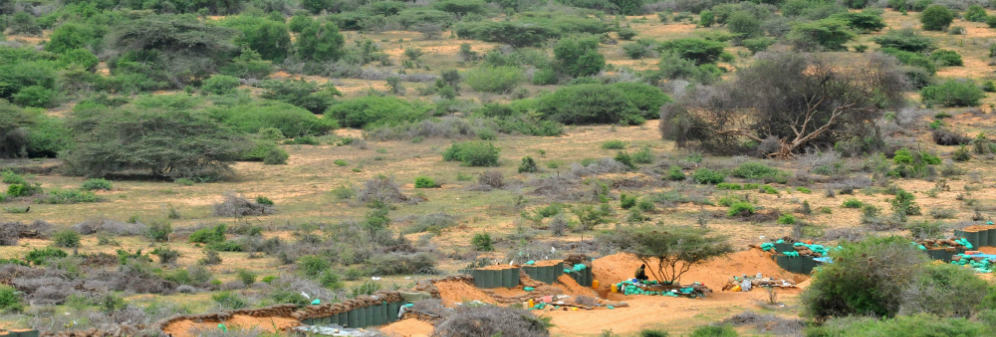Understanding the cost of war on dryland environments
If you watch the news and wonder how wars impact environments and the people living in them, you’ll recognise the importance of this project.
The challenge
Drylands cover around 40% of our planet’s land and support roughly 2 billion people, 90% of whom live in low-to-middle income countries. They’re critical to the survival of so many and are always on the margin of productivity.
Yet it’s clear from images of Syria, Afghanistan, Iraq, Yemen and elsewhere that many of today’s wars are fought in dryland regions. How do tanks, explosions and mass migrations affect such fragile places?
Wars are inherently destructive, so maybe the answer seems obvious. But there’s been very little study of their long-term environmental consequences – something we’re now attempting to address.
What we’re doing
We’re focusing on Somalia, one of the world’s poorest, least developed and most war-torn nations. Decades of internal conflict, poverty and political instability, leading to drought and famine, have taken their toll on the environment. Somalis rely on vulnerable drylands: 60% of people here are nomadic or semi-nomadic and the livestock they raise account for 40% of the country’s GDP.
Understanding the effects of war is complex, but our pioneering project includes 12 experts in sciences and humanities from across the University of Bristol and our collaborators. We’re using satellite imagery to record how land evolves over time; we’re mapping conflict patterns using publicly available databases; we’re analysing soil DNA to look for changes in composition and microbial diversity; and we’re learning from the experiences of once-nomadic Somalis now based in the UK.
How it helps
Our partnerships with Somali-based agencies means we can ensure our results reach those communities most able to make a difference on the ground. Our output will also be a valuable resource for UN agencies working in the area.
Ultimately, we want to improve sustainable land use in dryland regions – both in Somalia and around the globe – but we know that may be a longer-term ambition. By quantifying the effects of conflict on the land, we’re taking the all-important first step towards that goal.
Image credit: Susan Schulman
Related research centres
Partner organisations
- King’s College London
- Royal United Services Institute
Global challenge research
We're tackling the world's biggest problems through collaboration and innovation.

